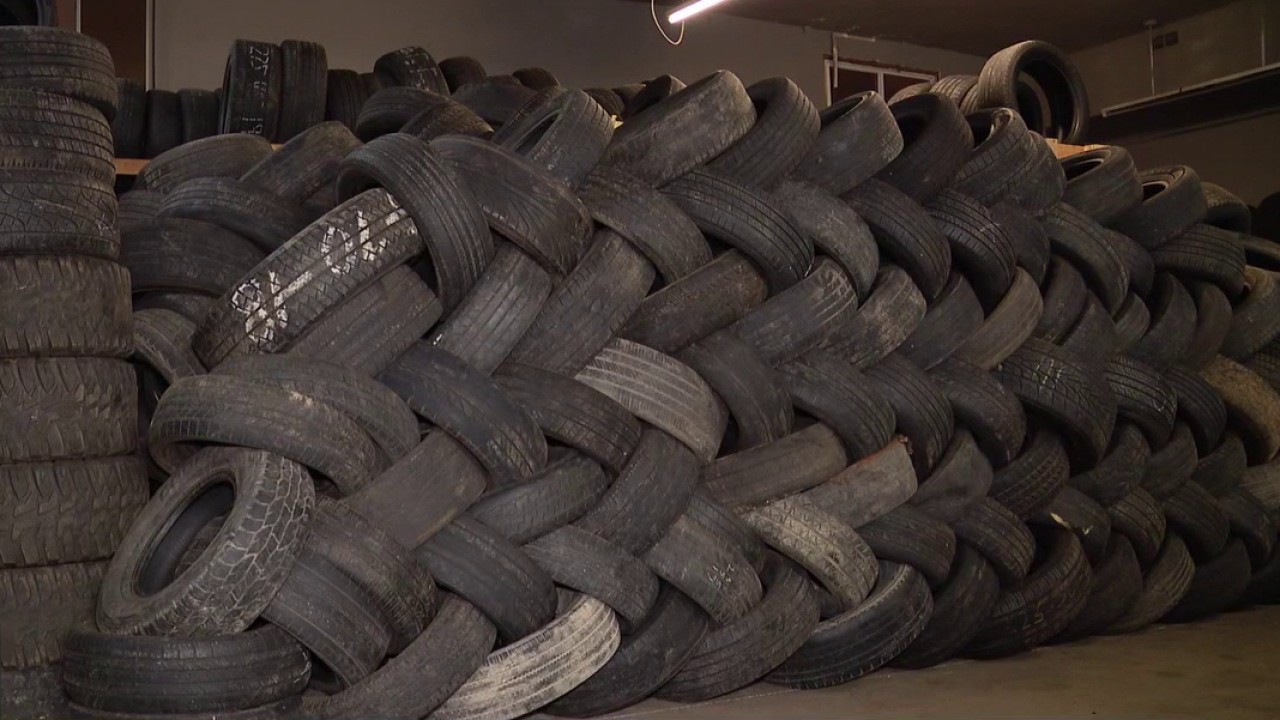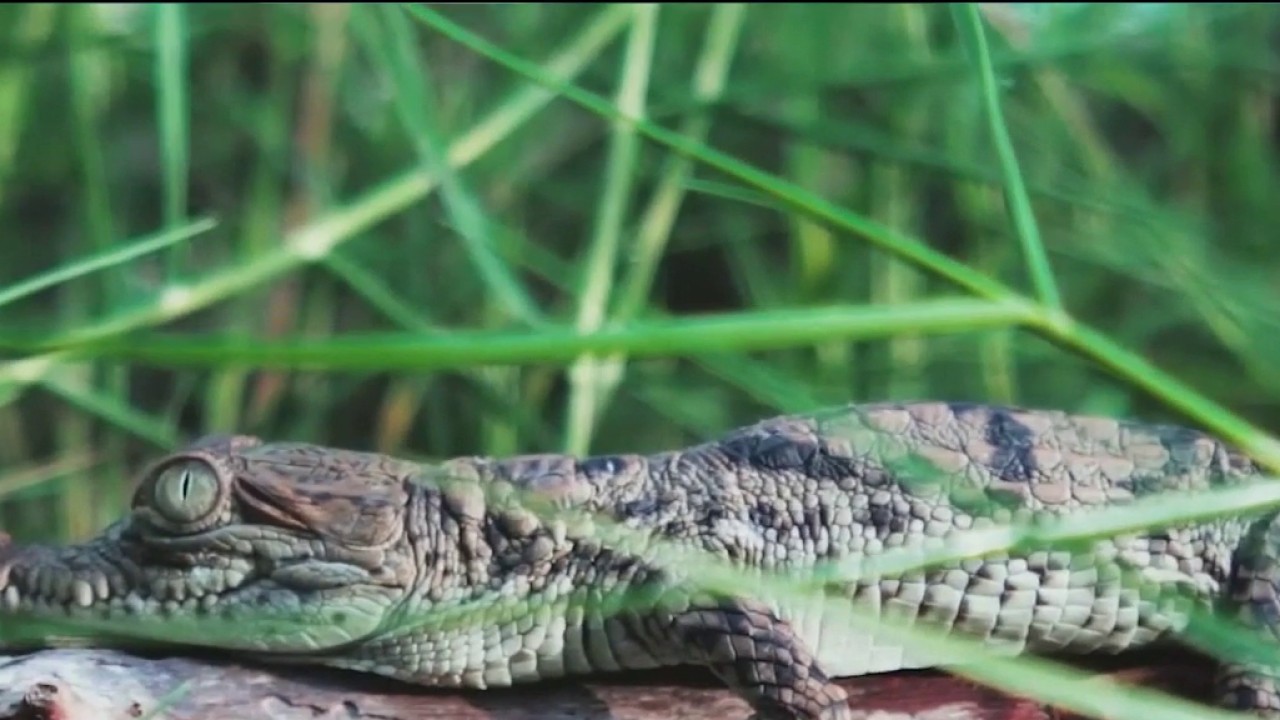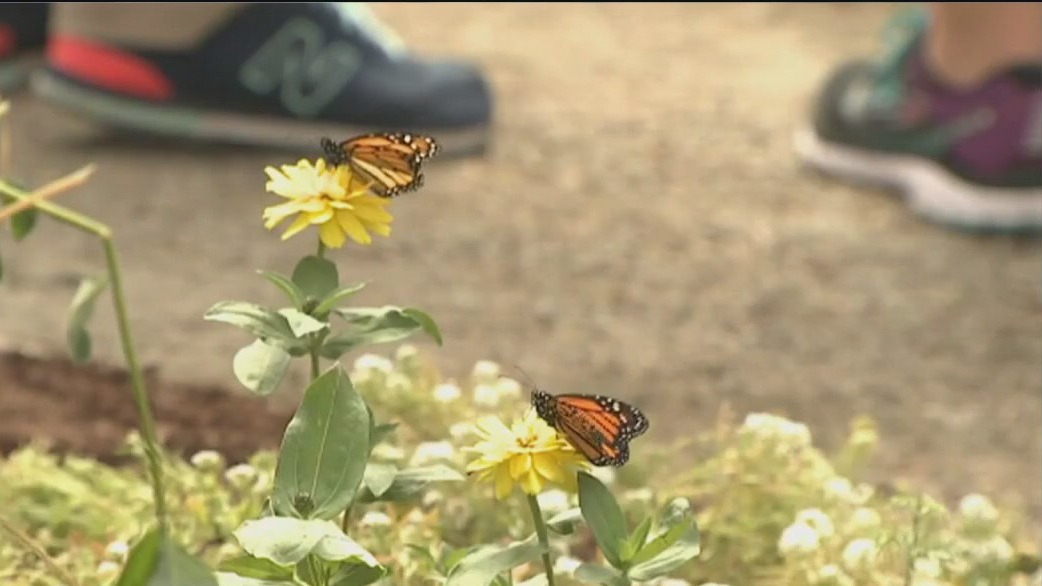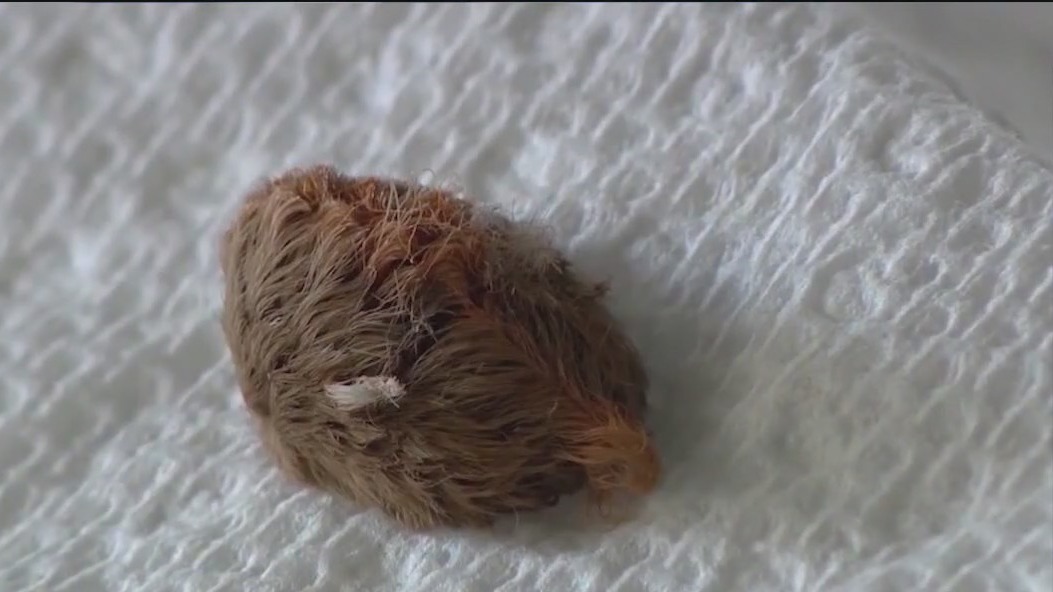Frostweed 'blooms' in Florida's deep freeze
An incredible phenomenon in Gainesville as one woman's Frostweed did something extraordinary. FOX 13's Dave Osterberg reports.
An incredible phenomenon in Gainesville as one woman's Frostweed did something extraordinary. FOX 13's Dave Osterberg reports.
Frostweed 'blooms' in Florida's deep freeze
An incredible phenomenon in Gainesville as one woman's Frostweed did something extraordinary. FOX 13's Dave Osterberg reports.
An incredible phenomenon in Gainesville as one woman's Frostweed did something extraordinary. FOX 13's Dave Osterberg reports.
Earthquake sensors tracking space junk crashes
Scientists have found a way to track when and where space junk crashes on earth. FOX 13's Dave Osterberg reports.
Scientists have found a way to track when and where space junk crashes on earth. FOX 13's Dave Osterberg reports.
Deforestation impact on mosquitos
A new study suggests the mosquito problem is getting worse and it could have something to do with deforestation. FOX 13's Dave Osterberg explains.
A new study suggests the mosquito problem is getting worse and it could have something to do with deforestation. FOX 13's Dave Osterberg explains.
Scientists use tires to make stronger concrete
Dave O. the Science Pro explains how old tires are being used to make stronger concrete.
Dave O. the Science Pro explains how old tires are being used to make stronger concrete.
Good news and bad for Florida crocodiles
Dave O. the Science Pro explains how an increase in feral cats could be impacting crocodiles in South Florida.
Dave O. the Science Pro explains how an increase in feral cats could be impacting crocodiles in South Florida.
Robot collects data under Antarctic ice
A robot has measured the temperature and saltiness from parts of the ocean that have never been sampled before. FOX 13's Dave Osterberg has more.
A robot has measured the temperature and saltiness from parts of the ocean that have never been sampled before. FOX 13's Dave Osterberg has more.
Florida’s horseshoe crabs threatened as sea levels rise
Rising sea levels threaten Florida horseshoe crab breeding grounds. FOX 13's Dave Osterberg reports.
Rising sea levels threaten Florida horseshoe crab breeding grounds. FOX 13's Dave Osterberg reports.
‘Insect apocalypse’ threatens global food supply
Dave O. the Science Pro explains why fewer bugs flying around can be an ecological crisis.
Dave O. the Science Pro explains why fewer bugs flying around can be an ecological crisis.
Scientists test shark bite resistant wetsuits
Dave O. the Science Pro explores bite-resistant wetsuits designed to keep ocean-lovers safe from shark attacks by preventing deep cuts and major blood loss.
Dave O. the Science Pro explores bite-resistant wetsuits designed to keep ocean-lovers safe from shark attacks by preventing deep cuts and major blood loss.
Hurricane Melissa research flights
Dave O. the Science Pro talks one-on-one with a NOAA hurricane hunter who flew into the eye of Hurricane Melissa.
Dave O. the Science Pro talks one-on-one with a NOAA hurricane hunter who flew into the eye of Hurricane Melissa.
Puss caterpillar is back in Florida
The puss caterpillar is the most venomous caterpillar in the nation and are usually found in the spring and fall in Florida. Dave O. the Science Pro explains why you don?t want to touch them despite their fuzzy appearance.
The puss caterpillar is the most venomous caterpillar in the nation and are usually found in the spring and fall in Florida. Dave O. the Science Pro explains why you don?t want to touch them despite their fuzzy appearance.
?King tides? bring flooding to coastal areas
Parts of the east coast are seeing the effects of king tides and it?s happening at a time when Mother Nature is putting on a show in the sky as well. Dave O. the Science Pro explains.
Parts of the east coast are seeing the effects of king tides and it?s happening at a time when Mother Nature is putting on a show in the sky as well. Dave O. the Science Pro explains.
What is the Fujiwhara Effect?
Dave O. the Science Pro explains the Fujiwhara Effect and how it helped Humberto pull Imelda away from Florida.
Dave O. the Science Pro explains the Fujiwhara Effect and how it helped Humberto pull Imelda away from Florida.
Sunscreen made from pollen helps planet
FOX 13 Meteorologist Dave Osterberg breaks down a new type of sunscreen that?s environmentally friendly.
FOX 13 Meteorologist Dave Osterberg breaks down a new type of sunscreen that?s environmentally friendly.
Fighting pythons with robotic rabbits
Robotic rabbits are the latest weapons in the fight against the rising population of pythons. FOX 13?s Dave Osterberg explains
Robotic rabbits are the latest weapons in the fight against the rising population of pythons. FOX 13?s Dave Osterberg explains
Why are school buses colored yellow?
FOX 13 Meteorologist Dave Osterberg explains the science behind the official "National School Bus Glossy Yellow."
FOX 13 Meteorologist Dave Osterberg explains the science behind the official "National School Bus Glossy Yellow."
USF researchers uncover insight into pandemics
FOX 13 Meteorologist Dave Osterberg spoke with USF professor Dr. Rays Jiang about how research is shedding light on the history of pandemics.
FOX 13 Meteorologist Dave Osterberg spoke with USF professor Dr. Rays Jiang about how research is shedding light on the history of pandemics.
Using AI for targeted weed spraying
FOX 13 Meteorologist Dave Osterberg speaks with Dr. Nathan Boyd about how scientists at the University of Florida are using artificial intelligence to better apply herbicides in tomato fields.
FOX 13 Meteorologist Dave Osterberg speaks with Dr. Nathan Boyd about how scientists at the University of Florida are using artificial intelligence to better apply herbicides in tomato fields.
Florida panthers rebound with help from pumas
FOX 13 Meteorologist Dave Osterberg explains how the Florida panther population is getting a boost from Texas pumas.
FOX 13 Meteorologist Dave Osterberg explains how the Florida panther population is getting a boost from Texas pumas.





















